‘We should stay home for as long as we are said to’
Entrepreneurs and experts discussed what they expected from the state
Experts of Volga club discussed how the state was supporting small and medium-sized businesses during the crisis. They saw the authorities that believe to be doing a lot to support SMEs, while entrepreneurs are sinking in their problems. Participants in the club agreed that all businesses had been affected. Read more about what entrepreneurs should do with rental and salaries during self-isolation and after it in Realnoe Vremya’s report.
Are we saving the economy or people?
Starting the discussion with Volga club experts, moderator Vladimir Kutilov paid attention to that almost every entrepreneur had to choose: “To cut the business — lose the team that’s close to you, people, who you invested a lot of money and effort to look for and train, which also means let people down, put them in a difficult situation. It isn’t easy to stay strong, take out loans when the horizon of events isn’t clear”. And entrepreneurs who are hoping for the state’s support in such a situation total 600,000 in Tatarstan alone.
Kutilov reminded the audience that President of the republic Minnikhanov offered to consider self-employed people and sole traders as those who lost their jobs after 1 March. But the federal authorities haven’t replied to this yet, neither have they “published the full list of measures with their value yet, though the announced amount of economic support has exceeded 2 trillion rubles”. The moderator asked the participants in the club for their opinion: “Are the supporting measures economic measures or ways of social help?”
Aleksandr Malkevich, member of the Russian Civic Chamber noted that the question was provocative. In his opinion, social support and support for businesses are intertwined things. He sees Tatarstan going way ahead in these measures, including in the pass system. “But Moscow and Tatarstan with its experience of Innopolis can afford it, the IT sphere is in trouble in many regions.”

If it is easier to invest now to avoid a headache later
First Vice President of Opora Russian All-Russian Organisation of SMEs Azat Gazizov also thinks that it is a very unpleasant choice — to save the economy or people when several crises have coincided. He noted that there are a lot of experts in oil, virology among armchair critics, “but there isn’t a single person who could give good advice — there is no experience. But Russia is luckier than the countries we are looking at”.
“Small and medium-sized businesses perform a social function. It is a social unit, not economic, the development of both small territories, villages and settlements depends on them. 15-20 million people provide the activity of SMEs. Some are forecasting how many enterprises will close soon. But where will these people go? The state can’t provide them with jobs. They will go to the employment agency, in the end, this burden with payments of 12,000 will fall on the state. Isn’t it easier to invest in this to avoid the headache in the future?”
Gazivov reminded the participants that “businesses aren’t asking for money for themselves — staff is the key capital — but to save jobs. The state is rescuing itself by saving small businesses. And a new economic policy is needed, for instance, to free businesses from taxes for six months so that it will save jobs”.
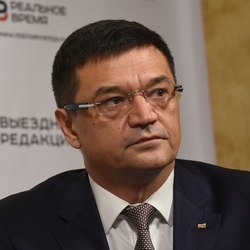
Quick and easy solution in Ireland
Discussing state steps during the crisis, Vice President of Opora Russia Nikolay Dunayev claimed that it was wrong to compare the USA and Russia. The USA is keeping a balance, which exceeds our economy many times. According to Dunayev, America is “a printing machine that exports inflation around the world. It is wrong for us to look at them”. He notes that some 25% of the population out of 1,5 billion people in China — “along the seashore, on the borders with Russia and Kazakhstan with hotspots of civilisation — approached the western population, while over a billion of Chinese are poor and have no rights”.
“China has firmly interfered in the situation with COVID and continued its expansion around the world, reinforced its business model and will remain a driver. They will have interesting movements when asked about the spread of the coronavirus,” Dunayev noted.
In general he thinks that people in the Celestial Kingdom live worse we do, such a model isn’t acceptable either.
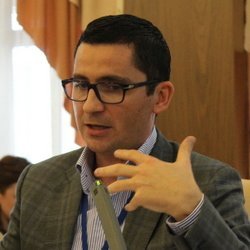
Where should a business find money for salaries?
When founder of Akulchev company Sergey Akulchev was asked if profit was the main goal of the business, he disagreed with this economic axiom:
“This formula is wrong. A business is usually evaluated in rubles — it is clear. In fact, if we look inside, people do something for people. If there aren’t workers, you won’t be able to manufacture a good and sell it to somebody. Only people create them and add a value transforming it into rubles.”
The head of the confectionery said that his company didn’t receive any support — this is why it didn’t apply for it. He noted that the company like many enterprises had problems with exports and imports.
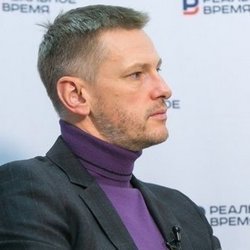
Hungry people are scary
Head of Evolution creative agency Arina Sudakova said that according to the Russian National Classifier of Types of Economic Activity wasn’t on the list of the most affected, and she can’t receive support. But the enterprise has some safety cushion. Also, Sudakova thinks that her non-production organisation — without machine tools, it does not sell brain labour — will find it easier to get out of the crisis. She also assumes that “an entrepreneur is, first of all, responsible for people and the result converted into money”.
“We are 20 people in the company like a family, we hired people with difficulty. Big enterprises took employees away from small companies 3-5 years ago. Now, when costs will start to be cut, they will get rid of people. I can offer a big business services at a fixed rate so that my copywriters will work, for instance, for three companies,” the director of Evolution thinks.
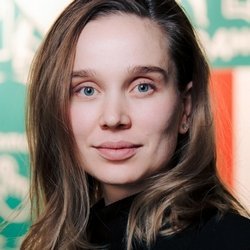
Power through people’s eyes
President of the Russian Association of Political Consultants Aleksey Kurtov put an example of European countries:
“I am looking amazed at Spain, Germany, Austria, how they are solving problems and how they are talking with the population. The state has assumed functions of talks with almost every businessperson, even if the person isn’t a citizen of Germany. Even those who don’t have a residence permit are anyway receiving concessions to save a business.”
Kurtov noted that in the country “Tatarstan is ahead of the planet as usual — the system of interaction of the authorities with people is established much better here”. But as for other regions, he gave them recommendations:
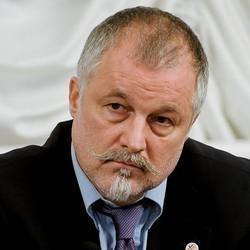
Small businesses will rescue the country
Nikolay Dunayev noticed: by cutting costs, entrepreneurs can agree with partners not to pay the rental. Vladimir Kutilov disagreed, he put an example of complaints about such talks ending with a termination of the contract. In answer, Azat Gazizov offered to write a letter to the Deposit Insurance Agency, he thinks that “new approaches to the rental can be created”.
“GDP of small and medium-sized businesses in the country’s economy accounts for 20%. Entrepreneurs began to believe that the state hears them. This is why rules need to be set: to ban bills that worsen the situation of SMEs for some period until the small ship that was loaded recovers. Everybody should be recognised as a victim because everybody is in the same boat. Moreover, the form of the Russian National Classifier of Types of Economic Activity has become obsolete, three big sections must be saved: production, commerce and services,” the first vice president of Opora Russia dictates the plan of actions.
“A big wardrobe is falling louder,” we made sure of this in the example of monotowns. Small and medium-sized businesses adapt faster and easier. I don’t see a contradiction between large and small entrepreneurship, it is different things that influence the economy of the country differently. Everybody should be helped,” Gazizov added.
In conclusion, Aleksey Kurtov reminded that in the 1990s people became enterprising. “Somebody travelled to buy fur coats — the country was rescued not with oil and gas but thanks to people’s desire to change their life. Small and medium-sized businesses will rescue the country.”